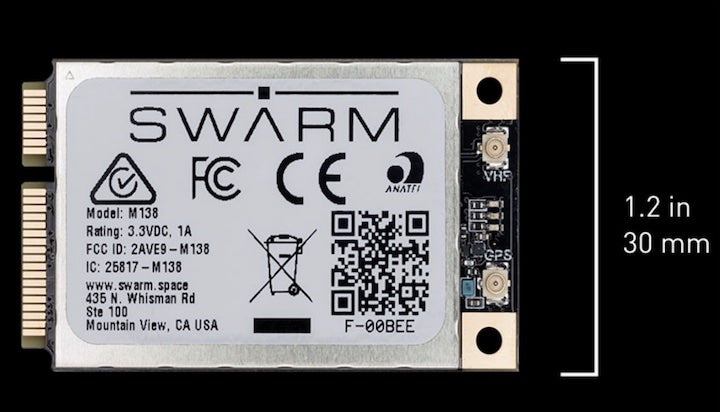Latest News

Swarm is halting sales of its M138 modem. Photo: Swarm Technologies
SpaceX subsidiary Swarm has ended new IoT device sales. TechCrunch first reported the news, and Swarm posted an FAQ on its website explaining that SpaceX’s future direct-to-cell offering will support commercial off the shelf IoT applications.
Via Satellite reached out to a Swarm representative and was directed to the FAQ that confirms the end of new device sales.
The company said it will still support current customers that use its M138 modem, which transmits and receives two-way data via its satellite network and can be embedded in third-party IoT devices.
The FAQ said Swarm recently launched more satellites for the network on SpaceX’s June 2023 rideshare mission, and is also manifested to launch more satellites for the network in 2024, indicating Swarm will continue supporting its customers.
The update gave more insight into SpaceX’s direct-to-cell plans for its Starlink network, which Elon Musk unveiled last year with T-Mobile. SpaceX recently announced direct-to-cell partnerships with Optus in Australia and Rogers Communications in Canada.
“Swarm plans to offer a future LTE version of the M138 modem that is compatible with the Direct to Cell network — supporting the same form factor, command set, and Hive/API interfaces that customers have used with our VHF [very high frequency] product. There will also be options to instead purchase COTS modules you may already be using from third party vendors,” the company said.
Swarm is a SpaceX subsidiary and was acquired by SpaceX in 2021. Swarm’s co-founder and former CEO Sara Spangelo is now senior director of Satellite Engineering and co-lead for Direct to Cell at SpaceX, according to her LinkedIn.
Last year, Spangelo said in an interview with Via Satellite that there would be more synergy between Swarm and Starlink products in the future.
At the time, Spangelo said Swarm had around 160 satellites in orbit and supported hundreds of customers in 15 countries, with 80% of the business being in agriculture and environmental monitoring. Swarm has supported customers like Dryad’s early forest fire detection and Rainforest Connection, which detects illegal logging by using IoT acoustic sensors placed in rainforests.
Get the latest Via Satellite news!
Subscribe Now